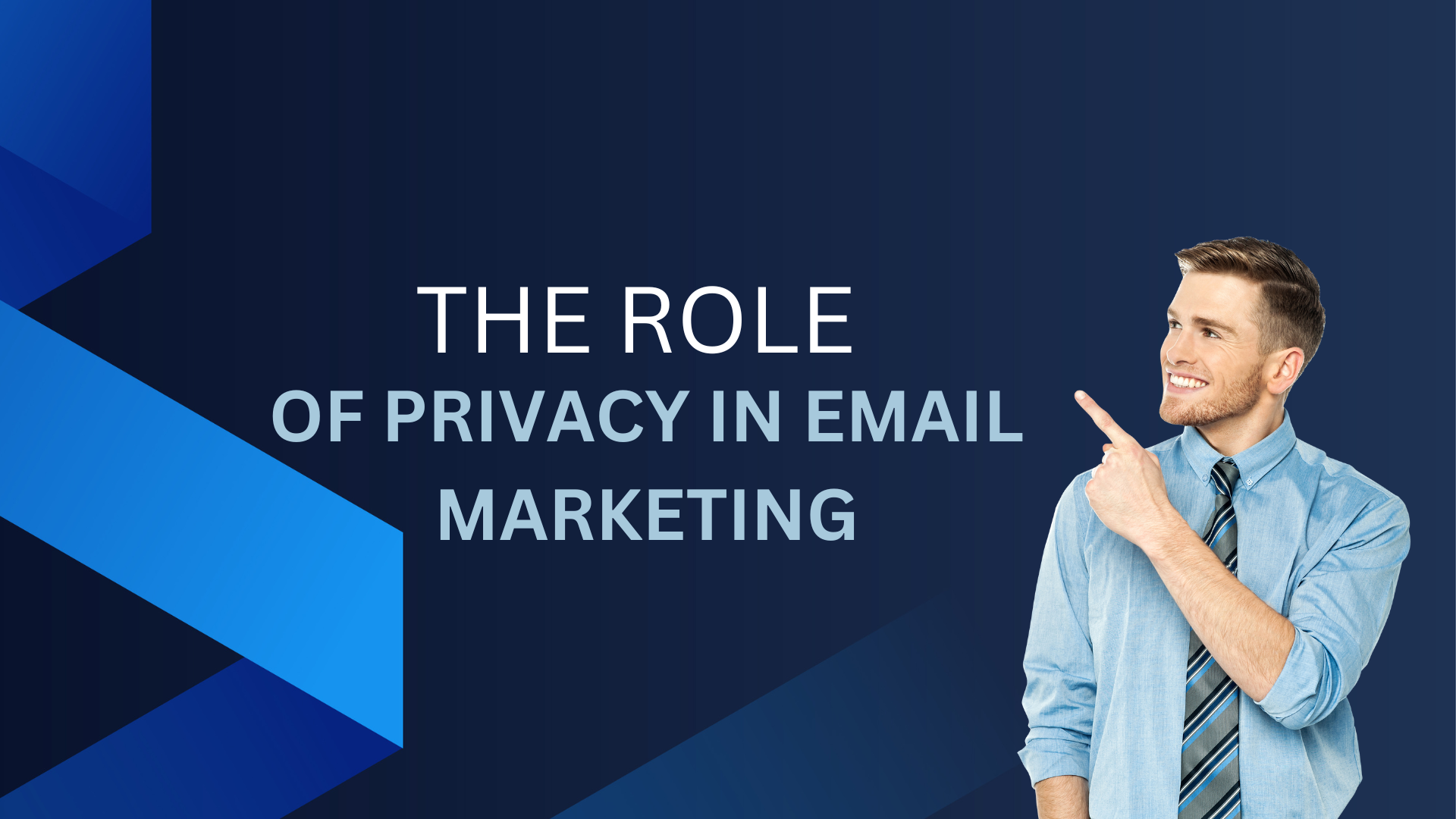In the realm of digital marketing, email remains one of the most effective tools for businesses to reach their audiences. However, with increasing concerns about data privacy and security, marketers must navigate the complexities of maintaining privacy while delivering personalized and effective email campaigns. This blog will explore the critical role of privacy in email marketing, examining current regulations, best practices, and the benefits of prioritizing user privacy.
The Importance of Privacy in Email Marketing
Privacy in email marketing is not just a legal obligation but a crucial aspect of building and maintaining trust with your audience. Consumers today are more aware of their digital footprints and are increasingly concerned about how their data is being used. According to a study by the Pew Research Center, a significant majority of internet users are worried about their online privacy and believe it is essential to have control over their personal information .
Prioritizing privacy helps in:
- Building Trust: When customers know their data is handled with care and transparency, they are more likely to engage with your brand.
- Compliance: Adhering to privacy regulations helps avoid legal repercussions and potential fines.
- Enhancing Brand Reputation: Companies that respect user privacy are often viewed more favorably, leading to higher customer loyalty and retention.
Privacy Regulations Impacting Email Marketing
Several key regulations globally dictate how businesses should handle personal data in email marketing. Understanding and complying with these regulations is vital.
- General Data Protection Regulation (GDPR): Implemented in May 2018, GDPR is a comprehensive data protection law that affects any company processing the personal data of EU citizens. Key aspects include obtaining explicit consent for data collection, allowing users to access and delete their data, and ensuring data security.
- California Consumer Privacy Act (CCPA): Effective since January 2020, CCPA grants California residents the right to know what personal data is being collected, to whom it is sold, and the ability to access and delete their data.
- CAN-SPAM Act: This U.S. law sets the rules for commercial email, establishing requirements for commercial messages, giving recipients the right to have emails stopped from being sent to them, and spelling out tough penalties for violations.
Best Practices for Ensuring Privacy in Email Marketing
To comply with these regulations and ensure the privacy of your email marketing efforts, consider adopting the following best practices:
- Obtain Explicit Consent: Ensure that you have explicit permission from users before adding them to your email list. This can be achieved through clear and concise opt-in forms. Avoid pre-checked boxes and ensure users are fully informed about what they are signing up for.
- Provide Clear Privacy Policies: Your privacy policy should be easily accessible and clearly explain how you collect, use, store, and protect user data. Transparency is key to building trust with your audience .
- Allow Easy Unsubscription: Make it simple for users to unsubscribe from your emails. The process should be straightforward and completed in a few clicks. According to the CAN-SPAM Act, every email should include a clear way to opt out of future emails.
- Segment and Target Appropriately: Use data responsibly to segment your audience and send relevant emails. Avoid excessive data collection and only gather information necessary for providing value to your subscribers.
- Regularly Update Your Email List: Periodically review and clean your email list to remove inactive or unengaged subscribers. This not only helps in maintaining a healthy sender reputation but also ensures compliance with data minimization principles.
- Implement Strong Security Measures: Protect the data you collect by using encryption, secure servers, and regular security audits. Data breaches can have severe consequences, both legally and in terms of brand reputation (Sender).
The Benefits of Prioritizing Privacy
Prioritizing privacy in email marketing offers numerous benefits beyond mere compliance:
- Enhanced Customer Trust and Loyalty: When customers feel their data is safe, they are more likely to engage with your emails and remain loyal to your brand.
- Improved Email Deliverability: Maintaining a clean and engaged email list, coupled with high data security standards, improves your email deliverability rates. Email service providers are more likely to trust and deliver your emails to the inbox rather than the spam folder.
- Better Engagement Rates: Personalized, relevant content that respects user privacy tends to see higher open and click-through rates. Users appreciate when their preferences and data privacy are respected (EmailLabs).
- Reduced Risk of Legal Issues: Compliance with data privacy regulations minimizes the risk of legal penalties and fines, ensuring your business can operate smoothly without disruptions .
Conclusion
In an era where data privacy concerns are at an all-time high, businesses must prioritize privacy in their email marketing strategies. By adhering to regulations like GDPR, CCPA, and the CAN-SPAM Act, and implementing best practices for data security and user consent, companies can build trust, enhance customer loyalty, and improve their overall email marketing effectiveness. Privacy is not just a regulatory requirement but a critical component of a successful, customer-centric email marketing strategy.
For businesses looking to enhance their email marketing while prioritizing user privacy, Data-Dynamix offers advanced solutions tailored to meet regulatory standards and deliver exceptional results. Contact us today to learn how we can help you achieve your marketing goals while safeguarding your customers’ privacy.

